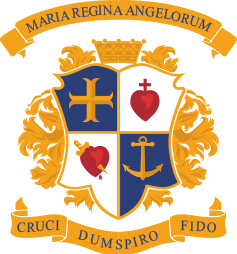History
Intent
The Loreto College curriculum gives students the opportunity to explore the Loreto values through investigating the world as it was in order to explain how it is today, in an intriguing and ambitious way.
The History Department at Loreto College believes that History is Every Story, so to this end we have developed a curriculum where pupils develop their disciplinary thinking through exploring the past from multiple perspectives and viewpoints. We strive to ensure our curriculum is representative of the past’s inhabitants, aiming to understand a broad historical narrative, with multiple conceptual threads (religion, power, empire to name just three) running through it. These threads have been sequenced to ensure a cohesive and broad understanding of the past.
One of our key aims at Loreto College is to ensure we build and challenge our young people’s understanding of themselves, the world around them and their own place within it. We believe that the study of History should inspire students’ curiosity to want to learn more about the inhabitants of the past, and so we ensure our teaching equips students to ask difficult questions, think critically, weigh evidence, evaluate arguments, and therefore develop perspectives and conclusions.
Our History curriculum exists, within the wider Loreto College curriculum, to challenge and develop our pupils, and to equip them with powerful knowledge, and a love of learning. We want it to help all our students join in with historical discourse and debate, and to challenge preconceived ideas.
Our lower school curriculum is divided up into three overarching questions, one for each year of Key Stage Three. Under each overarching question is a series of enquiry questions. Enquiries explore global, continental or local scales, emphasising the complexity of the past and the constructed, contested nature of History.
The GCSE course develops students’ understanding of a variety of periods and enhances their skills further in the processes of History; we focus upon a study of the Cold War up to 1972 and a Depth Study of twentieth century USA in order to enhance their understanding of the present day conflicts and issues. A study of changes in Health since 1000AD develops pupils’ skills in analysing and assessing long-term change and continuity in History, while a further Depth Study of Elizabethan society allows pupils to gain more precise understanding of how English monarchs and the political elite reacted to change and threats at the beginning of the ‘modern' era.
Post-16, we build on students’ ability to analyse and assess how different European societies in the Early Modern period changed, and how rulers and leaders reacted to political and religious change through studying the Early Tudors 1485-1558, Popular Culture and the Witchcraze in Europe and North America in the 16th and 17th centuries, and South Africa: From Apartheid to ‘Rainbow Nation’. As a department, we also offer A Level Politics, which aims to equip students with a broad and deep understanding of US and UK Government and Politics, to enable them to become active participants in democracy.
Themes of PSHE are covered both implicitly and explicitly in the History Curriculum, mainly focusing on the development of our modern political institutions and encouraging pupils to see themselves as future citizens who will continue to uphold the goals of Mary Ward.
History Curriculum Maps
-
Yr07 History Curriculum Map
download_for_offline
download_for_offlineYr07 History Curriculum Map
- Yr08 History Curriculum Map download_for_offline
download_for_offlineYr08 History Curriculum Map
- Yr09 History Curriculum Map download_for_offline
download_for_offlineYr09 History Curriculum Map
- Yr10 History Curriculum Map download_for_offline
download_for_offlineYr10 History Curriculum Map
- Yr11 History Curriculum Map download_for_offline
download_for_offlineYr11 History Curriculum Map
- Yr12 Apartheid Curriculum Map download_for_offline
download_for_offlineYr12 Apartheid Curriculum Map
- Yr12 Politics Curriculum Map download_for_offline
download_for_offlineYr12 Politics Curriculum Map
- Yr12 Tudors Curriculum Map download_for_offline
download_for_offlineYr12 Tudors Curriculum Map
- Yr12 Witches Curriculum Map download_for_offline
download_for_offlineYr12 Witches Curriculum Map
- Yr13 Reformation Curriculum Map download_for_offline
download_for_offlineYr13 Reformation Curriculum Map
- Yr13 Stuarts Curriculum Map download_for_offline
download_for_offlineYr13 Stuarts Curriculum Map
- Yr08 History Curriculum Map download_for_offline






